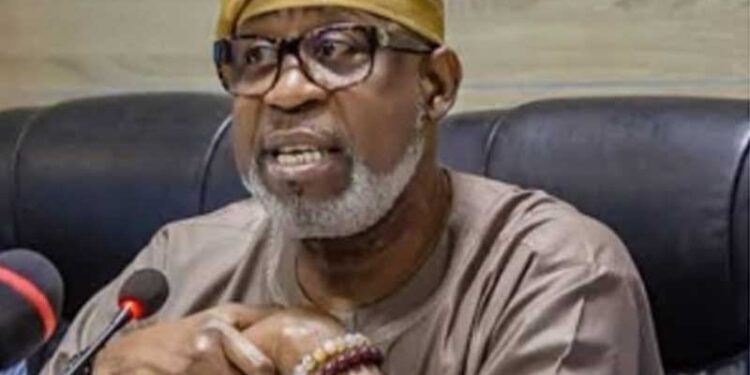Dr. Dele Alake, the Minister of Solid Minerals Development, affirmed that the reforms initiated by the Bola Tinubu administration have resulted in the collection of N6.96 billion in mining license fees during the first quarter of 2025. Speaking at the Organisation for Economic Cooperation and Development (OECD) Forum titled “Better Policies for Better Lives” held in Paris, France, the minister emphasized that these reforms are beginning to yield the anticipated outcomes.
In a statement issued by Segun Tomori, the minister’s Special Assistant on Media, it was noted that the Mining Cadastral Office processed nearly 1,000 title applications, approving hundreds of licenses to promote responsible development within the sector during this timeframe. “These reforms are already yielding results. In just the first quarter of 2025, Nigeria has generated N6.96 billion in mining license fees, formalized over 1,200 artisanal and small-scale mining cooperatives, and registered 118 private mineral buying centers,” he stated.
Alake also pointed out Africa’s crucial role in the global energy transition, highlighting the continent’s increasing contribution to the global supply of essential minerals such as cobalt, lithium, copper, and tantalum. He advocated for a shift in Africa’s approach, moving from being mere exporters of raw materials to leaders in value-added processing and high-value mineral supply chains.
“As Chair of the Africa Mineral Strategy Group (AMSG), I collaborate closely with my counterparts across the continent to promote a unified agenda focused on value addition, resource mobilization, and responsible development,” he affirmed. “Our objective is clear: to unlock inclusive growth from Africa’s vast mineral resources,” he elaborated.
Alake emphasized the necessity of cooperation, stating that building resilient, transparent, and ethical mineral supply chains requires collaboration among governments, the private sector, civil society, and local communities. “Nigeria is prepared to partner with global stakeholders to advocate for responsible sourcing, foster beneficiation, and create long-term economic value,” he underscored.
With the global energy transition underway, Alake noted the urgency for decisive leadership. “The future of electricity, transportation, telecommunications, and overall global prosperity hinges on our efforts here. We must seize this opportunity—not merely to discuss change but to actively drive it,” he urged.
The minister highlighted the significance of global partnerships in fostering a resilient and sustainable mining sector, emphasizing mining’s pivotal role in the transition to greener energy. He called attention to the need for intelligent site selection, optimized operations, sustainable processing, waste management, and environmental stewardship, viewing these as responsibilities owed to future generations rather than just policy aspirations.
Alake outlined Nigeria’s proactive measures to attract investment in its solid minerals sector, citing investor-friendly incentives such as import duty waivers, accelerated capital allowances, and tax holidays. He stressed that these incentives are being implemented alongside robust reforms that prioritize sustainable extraction, domestic processing, and improved infrastructure connectivity.











